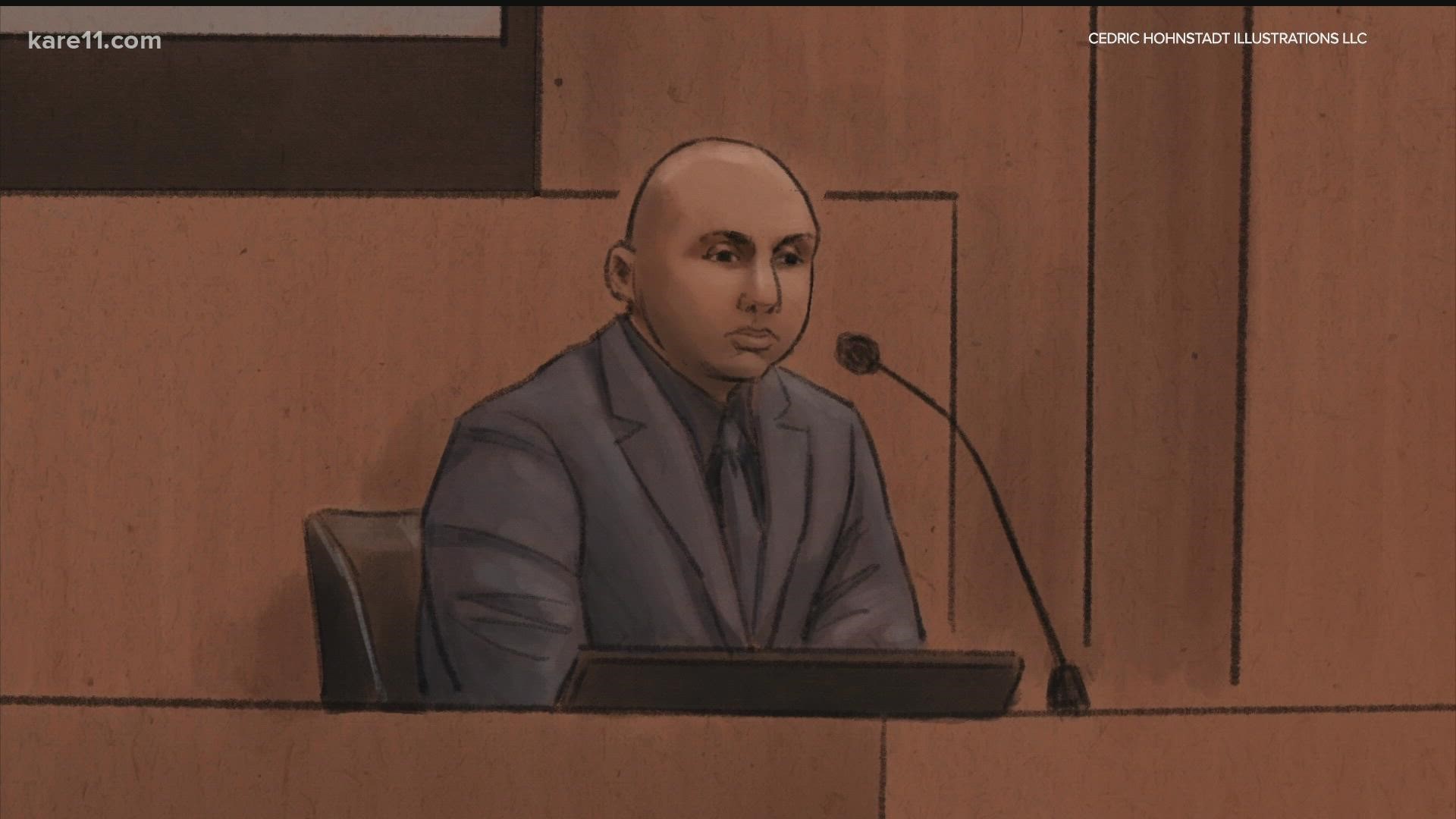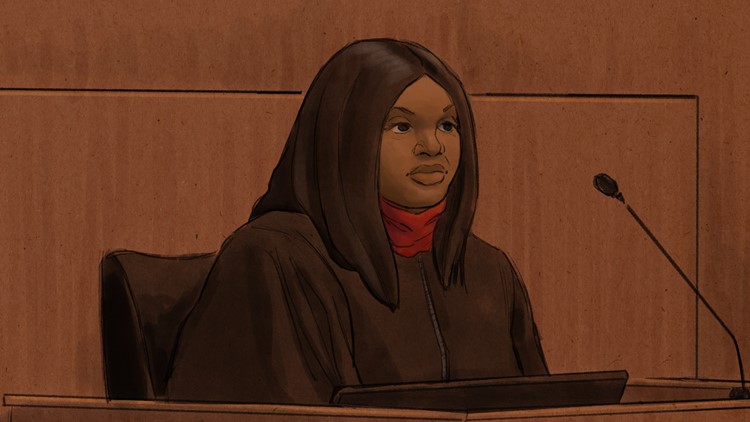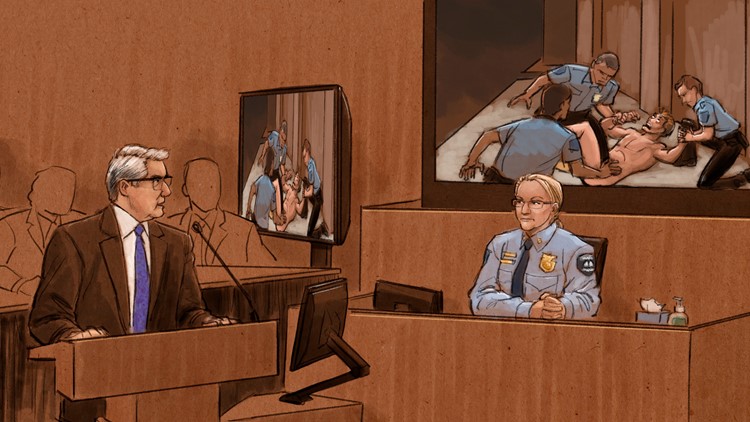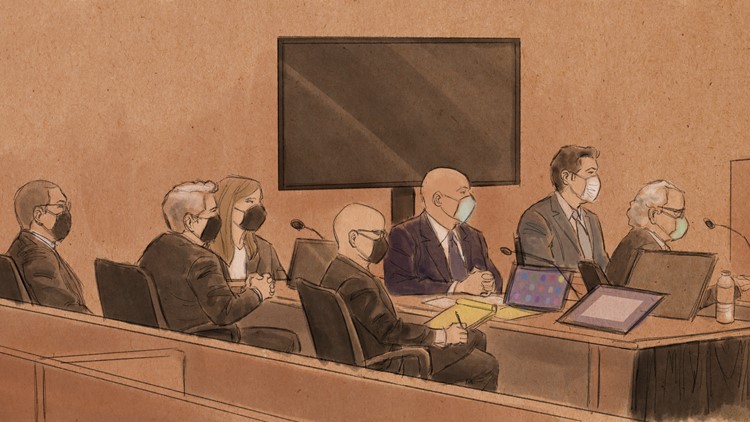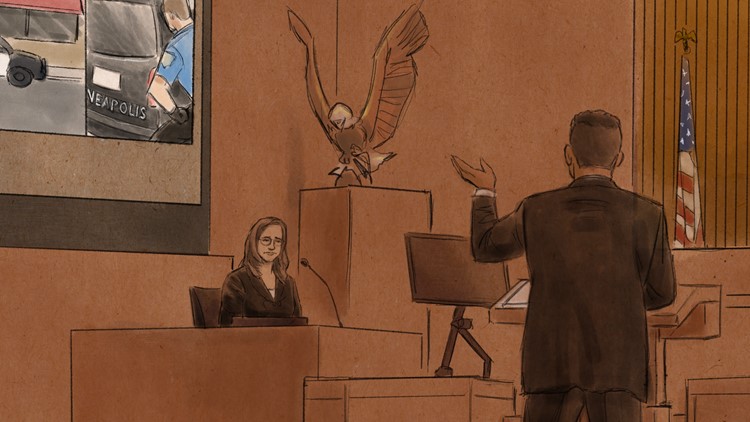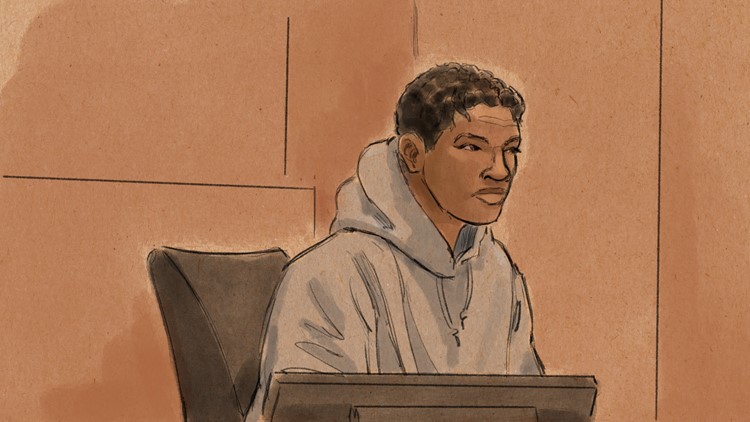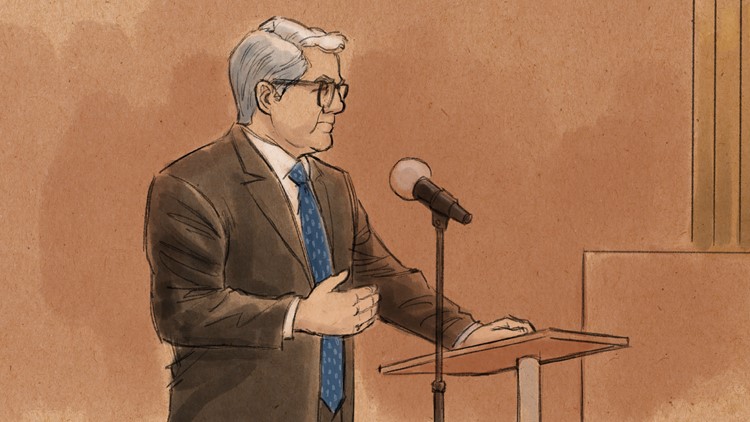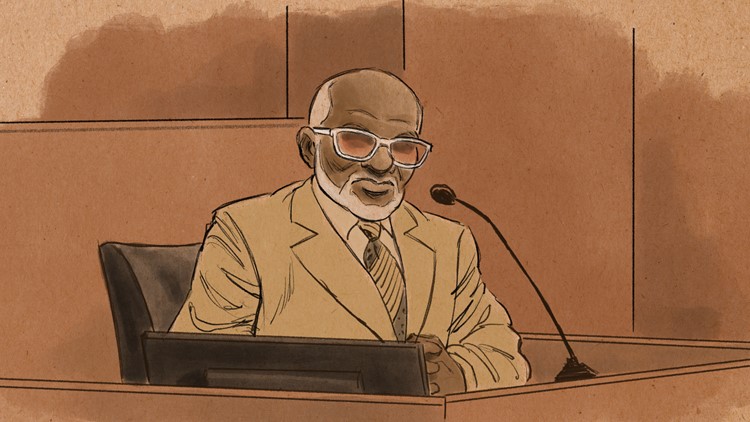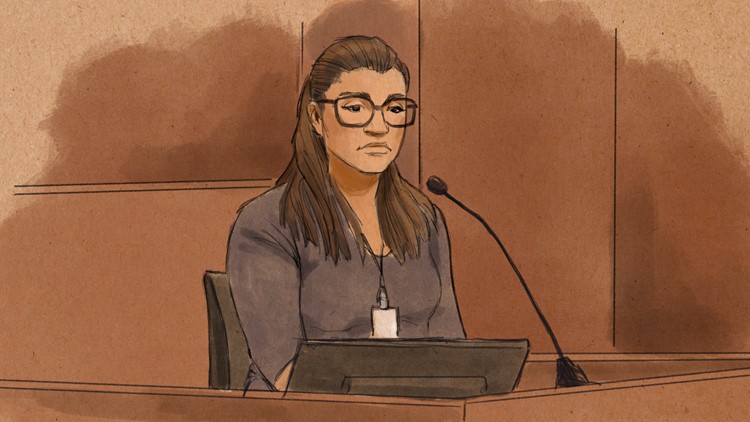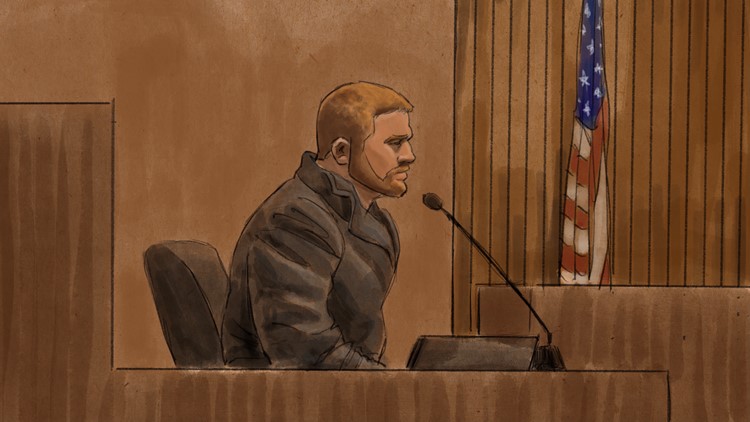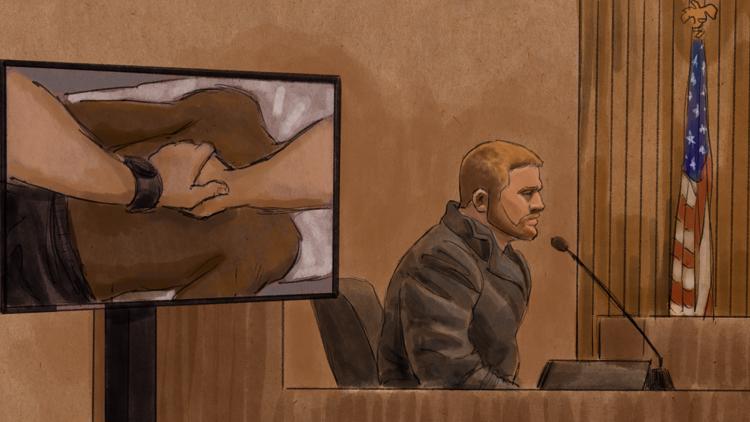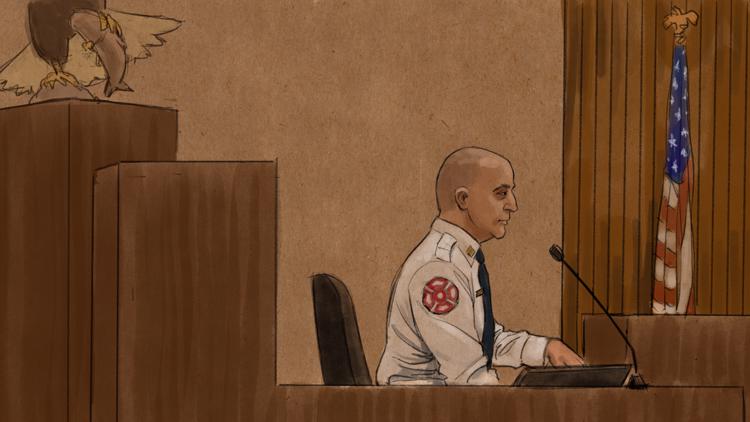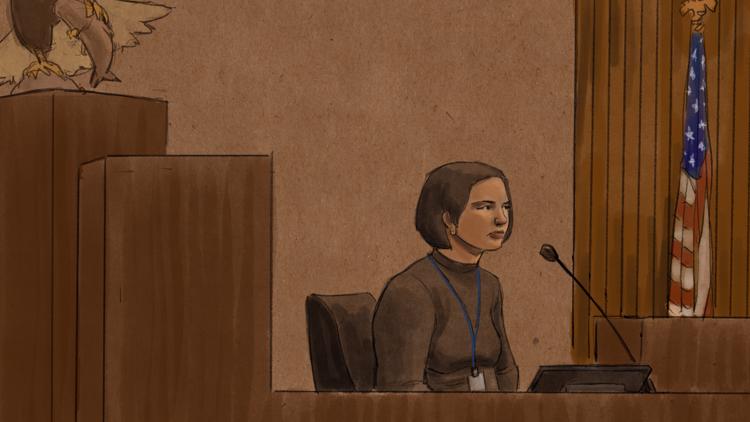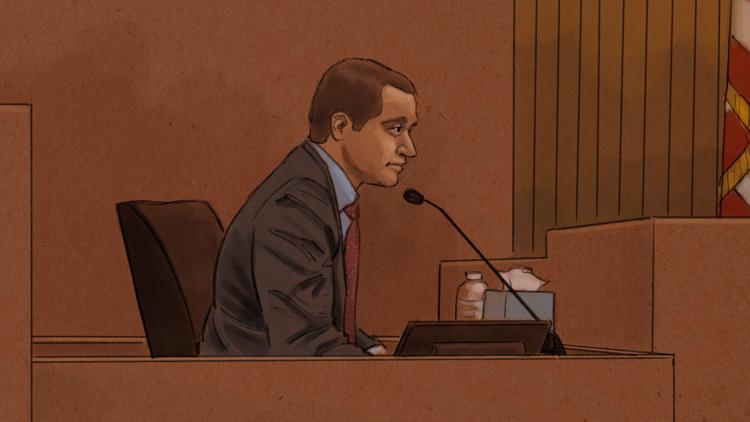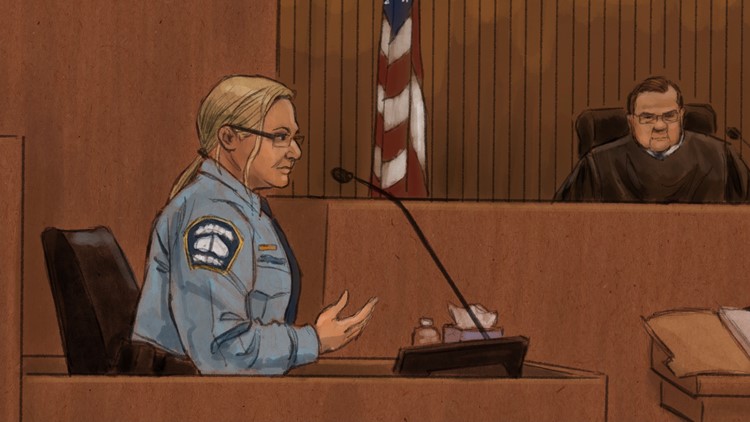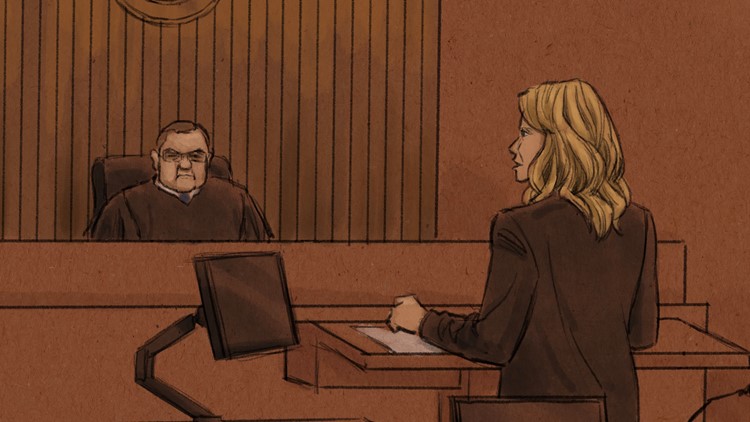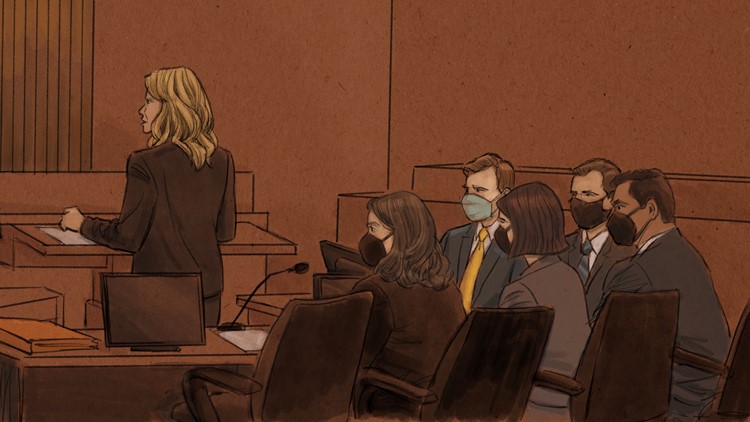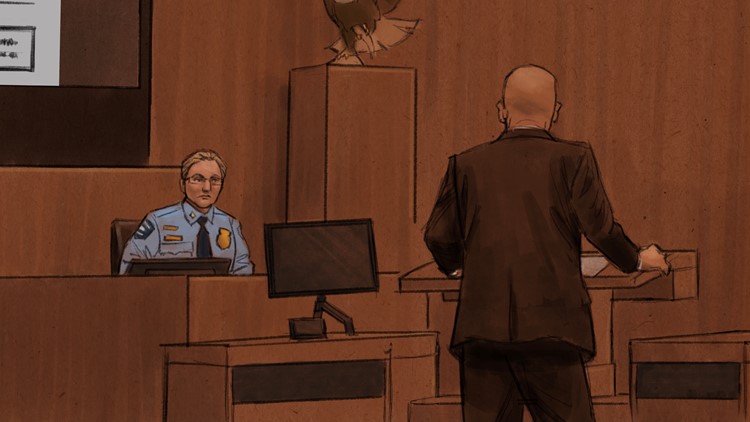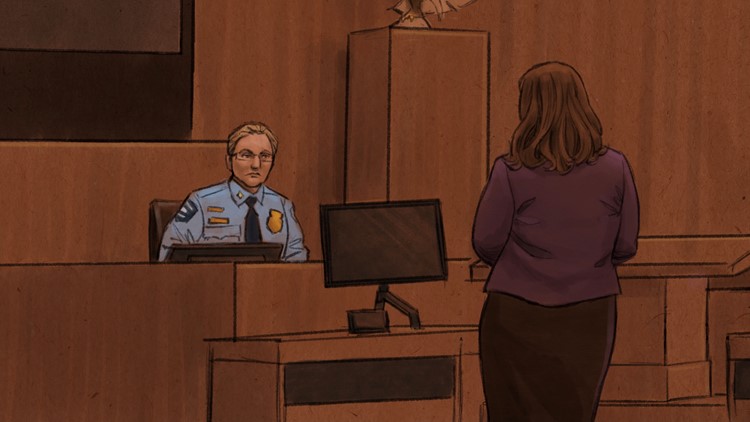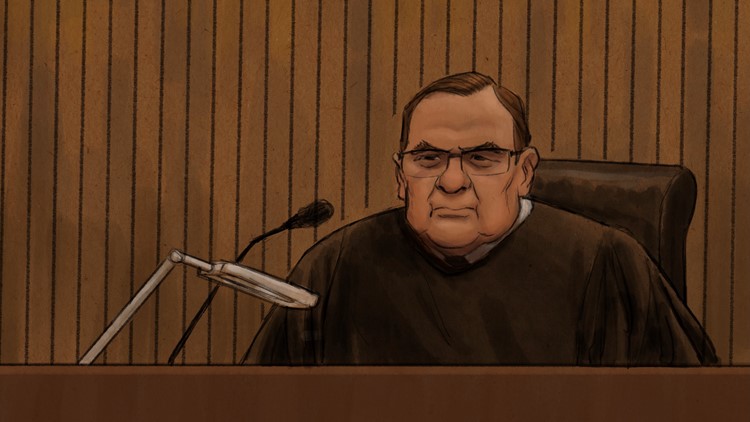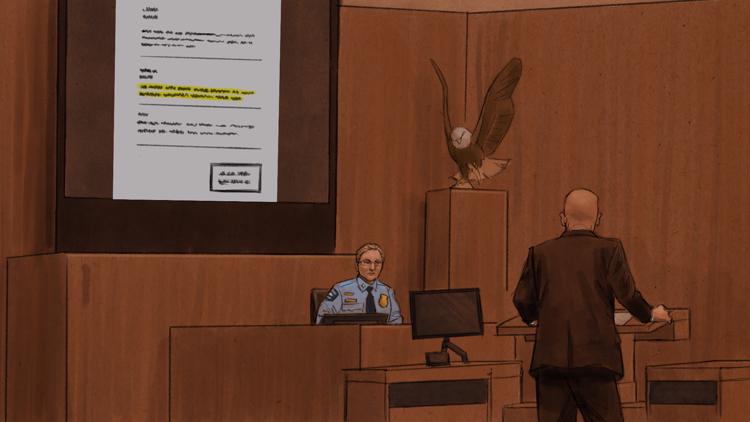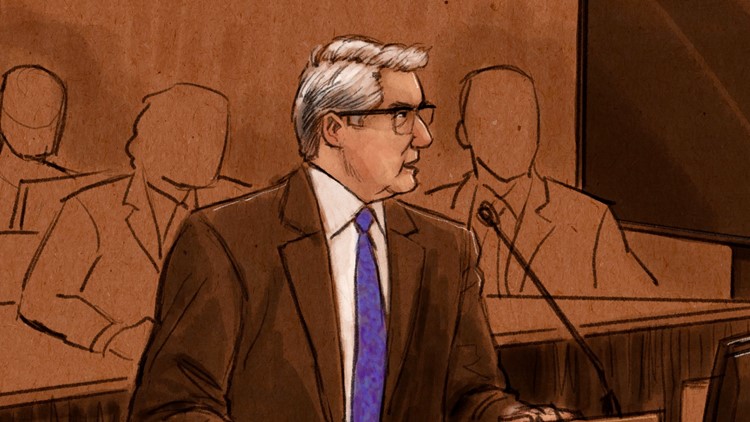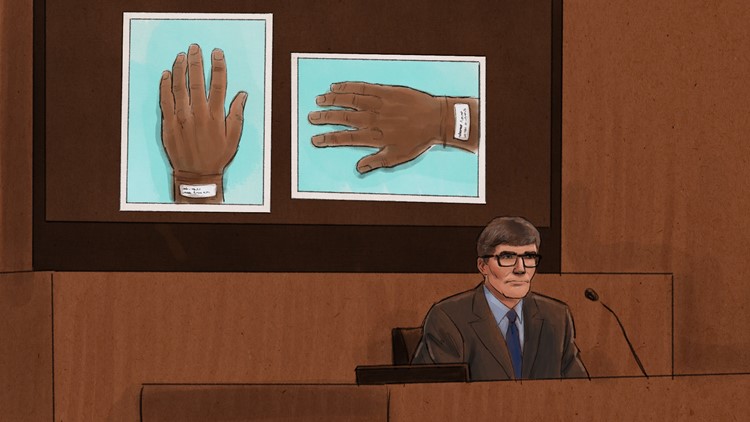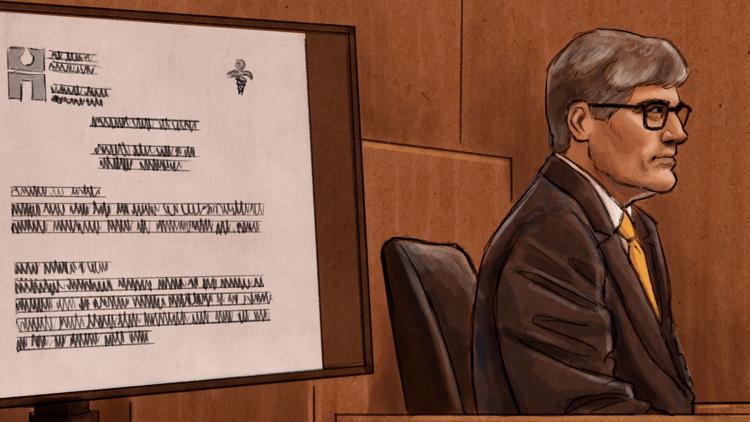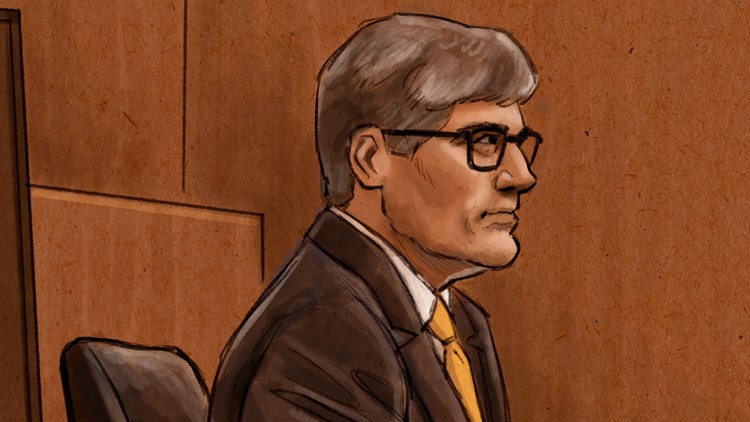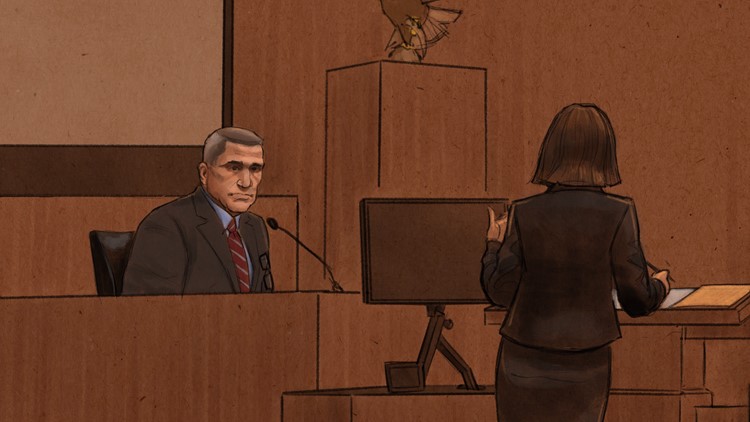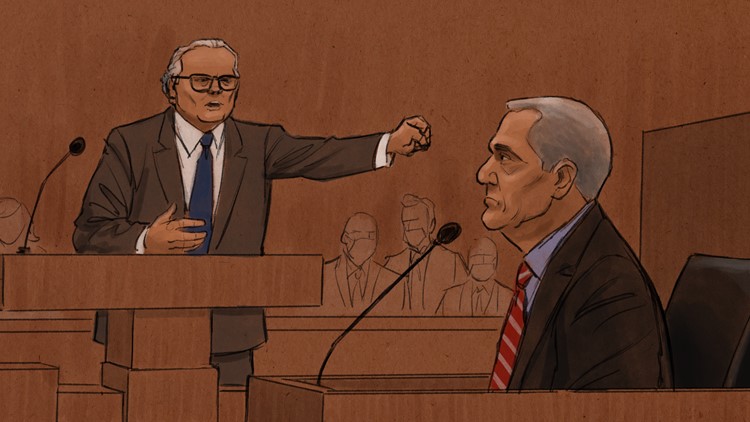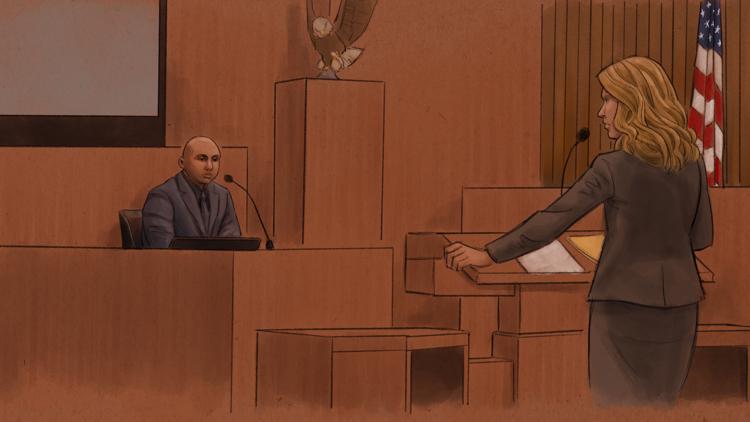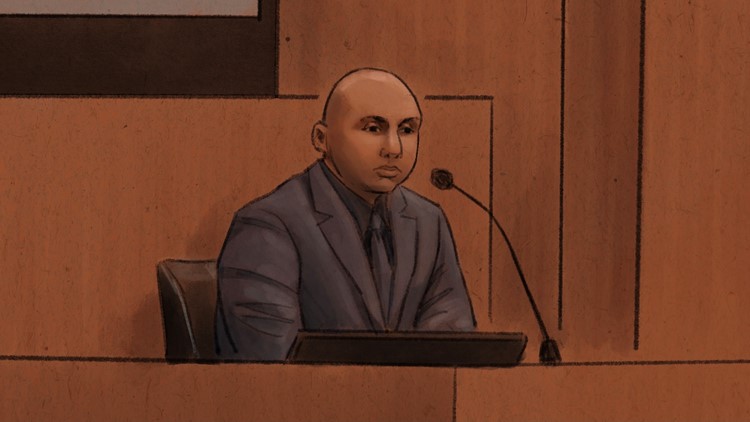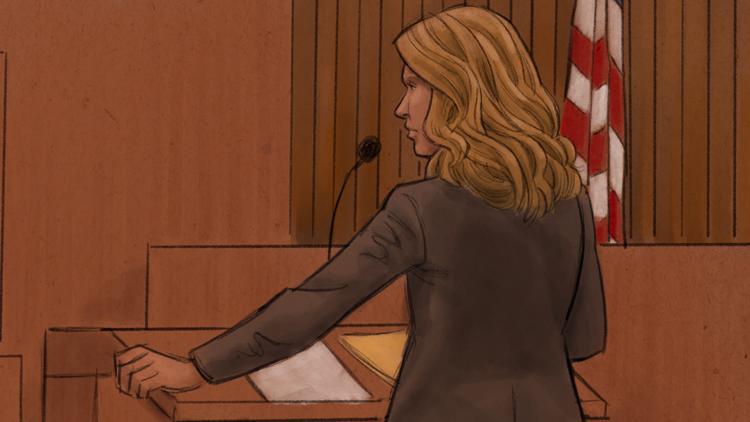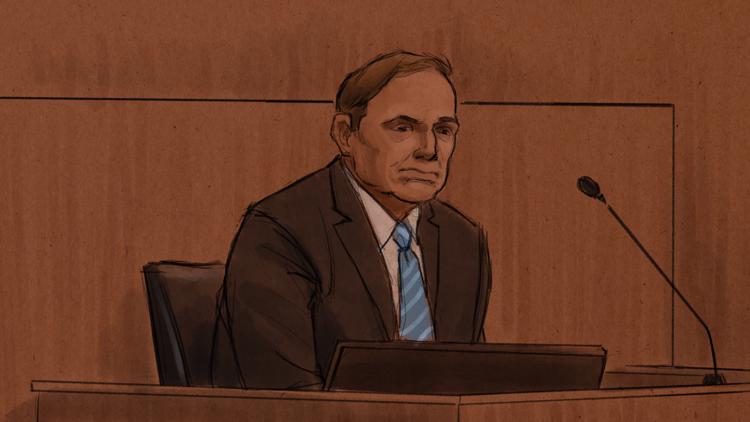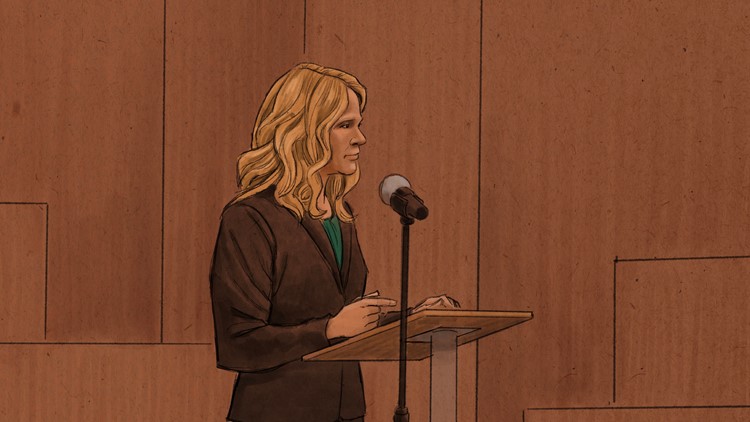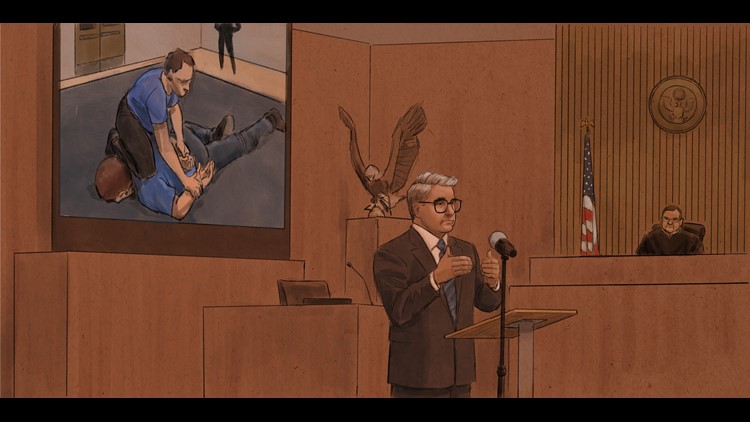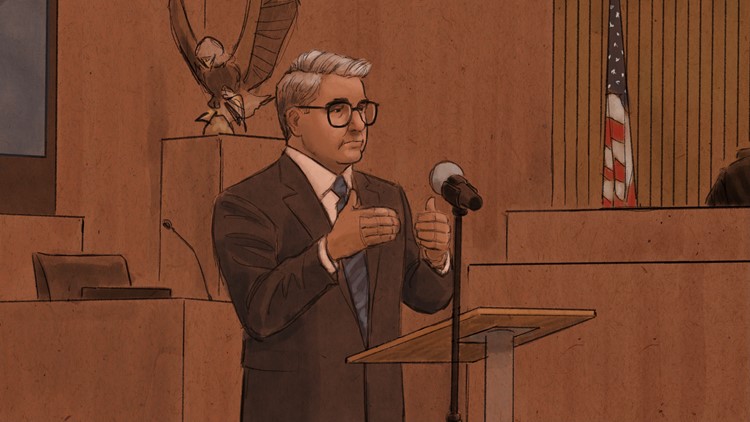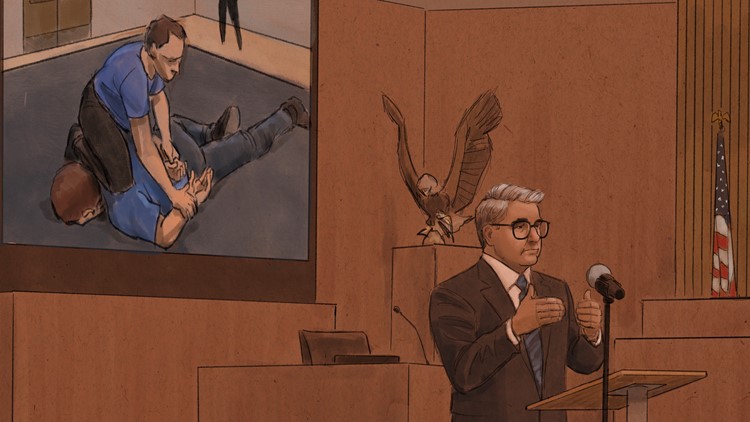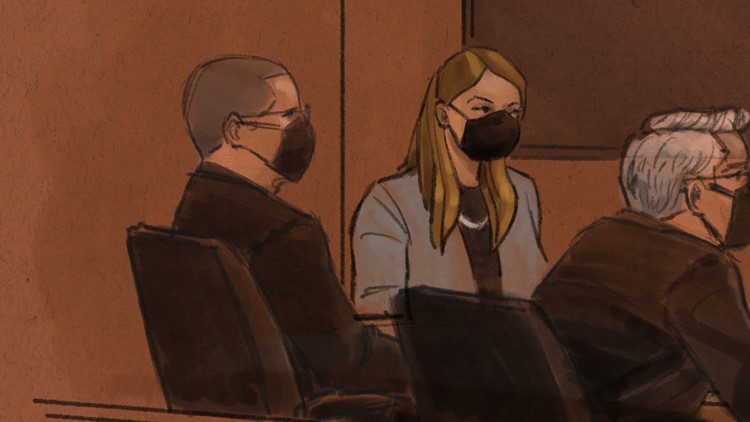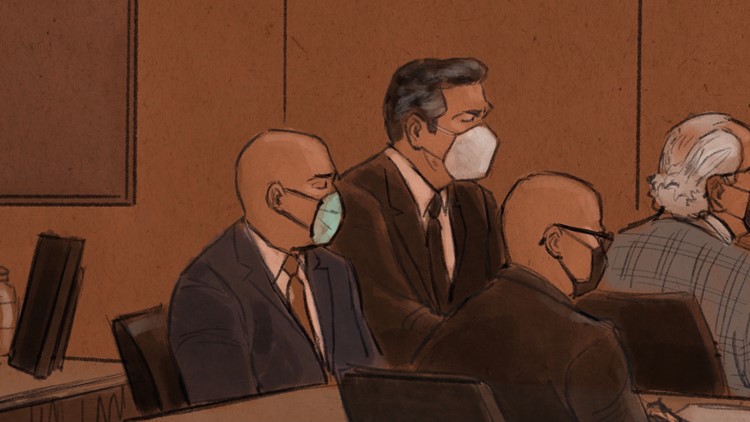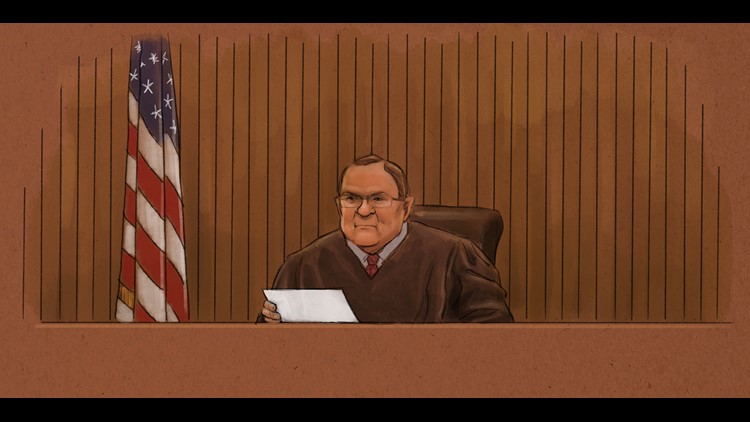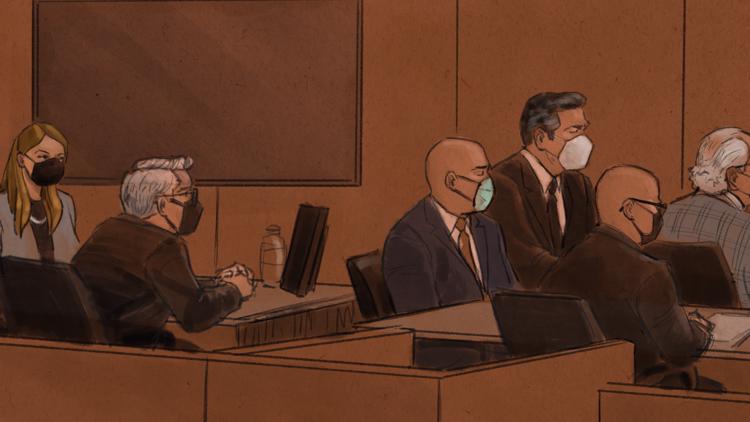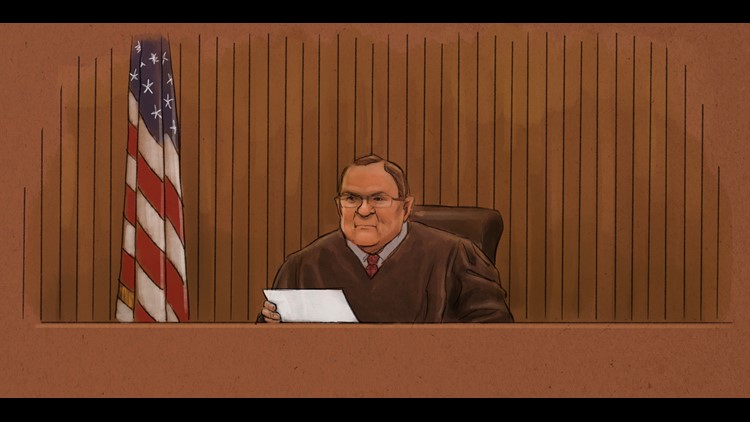ST PAUL, Minn. —
- Use-of-force expert Steve Ijames called to testify by Kueng's attorney
- Kueng on Derek Chauvin: "He was my senior officer and I trusted his advice"
- Tou Thao says he was filling a "support unit" role at the scene
Thursday marks the final day of testimony for the week in the federal trial of ex-Minneapolis officers Tou Thao, J. Alexander Kueng and Thomas Lane. Judge Paul Magnuson announced that on Friday, Feb. 18, court would not be in session and will resume on Monday, Feb. 21.
Thao, Kueng and Lane are charged with violating George Floyd's civil rights on the night of his murder at the hands of ex-officer Derek Chauvin. Kueng and Thao face an additional charge for not stepping in to help Floyd while Chauvin knelt on his neck for more than nine minutes.
The state rested its case on Monday, Feb. 14, and the defense teams are now calling their own witnesses and defendants to testify.
J. Alexander Kueng spent the morning on the witness stand.
Prosecutors worked to imply to the jury that Kueng should have intervened and stopped Derek Chauvin – even if he never was trained on "duty to intervene" scenarios.
Kueng testified that he was deferring to Chauvin as his senior officer and former training officer.
After Kueng testified, his attorney called use-of-force expert Steve Ijames.
Ijames testified that Chauvin's use of force was unreasonable – "beyond question" – once George Floyd was controlled. He agreed with prosecutors that there was no reason Floyd should not have been rolled on his side or given medical attention before being loaded into the ambulance.
But Ijames testified that as a rookie – on his third shift – Kueng wasn't about to throw Chauvin off of Floyd and that he would assume Chauvin was monitoring Floyd's medical state.
Court will not be in session Friday because Lane's attorney, Earl Gray, is due at the sentencing hearing of former Brooklyn Center police officer Kim Potter, who was convicted last year in the death of Daunte Wright. Gray also serves as Potter's attorney.
Trial will resume next week with Lane's testimony.
LIVE UPDATES:
2:20 p.m.
Ijames resumed his testimony after lunch, saying he believed Chauvin's use of force on George Floyd was unreasonable at the point Floyd stopped resisting. He reiterated the point on cross-examination, saying it was "beyond question" that Chauvin's use of force was unreasonable.
Ijames went on to agree that it was his position that Kueng lacked the training and experience to recognize that Chauvin's use of force was excessive. He said that it appeared Kueng was under the impression his senior officer was aware of things that he was not, which was why he didn't personally initiate medical care.
Ijames agreed with prosecutors that Floyd did not receive medical care until he was loaded into the ambulance, but testified that there was no reason to deny Floyd CPR earlier. He agreed that despite the officers' testimonies about an unruly crowd, the officers were not threatened during the interaction.
12: 30 p.m.
Shortly after the morning break, Kueng finished his cross-examination. The next witness called by Kueng's attorney Thomas Plunkett was use-of-force expert Steve Ijames, who also testified in the trial of ex-officer Kim Potter.
Before the courtroom broke for lunch, Ijames testified that the Minneapolis Police Department's training on duty to intervene doesn't meet national standards on the topic.
11:30 a.m.
The prosecution resumed its cross-examination of J. Alexander Kueng Thursday morning. During questioning by prosecutor Manda Sertich, Kueng told jurors that there's "an unofficial rule for seniority" at the Minneapolis Police Department, and "it's commonly known there is a hierarchy."
According to KARE 11 reporter Lou Raguse, who's been following the trial, the prosecution's biggest obstacle in obtaining a conviction is convincing the jury that Chauvin wasn't in charge of Kueng at the scene of George Floyd's murder.
Sertich brought up that when Thomas Lane suggested rolling Floyd over during his arrest, Kueng said "no, just leave him," echoing Chauvin. Kueng testified that he was on probation at the time and thought if Chauvin reported him for misconduct he would've been fired.
Tou Thao returned to the stand to be cross-examined by the prosecution.
Prosecutor LeeAnn Bell questioned Thao about images taken from the scene in front of Cup Foods where Floyd was murdered. Lou Raguse, KARE 11's reporter in the courtroom, noted the prosecutor's growing frustration after a series of objections from the defense about her line of questioning were sustained by Judge Paul Magnuson.
After a morning break, Bell asked Thou, "Did you communicate with your partners about Mr. Floyd stopping speaking... and you got a request from crowd to check his pulse?" He answered "no."
Thao's wife Seng Yang was briefly called to the stand. She told the jury about how they met, and said her husband had never been in trouble before and is law abiding.
Thomas Plunkett, the defense attorney for former officer J. Alexander Kueng, next opened his case by calling Kueng's mother Joni to testify.
She described her son as "peaceful" and someone who aims for conflict resolution. Prosecutors had no questions for Joni, so Plunkett then called Kueng himself to the stand.
Kueng testified that the training he was given about an officer's "duty to intervene" was just a "mention" during one unit, and involved only theory with no instruction in practice.
He also testified about field training officers, or FTOs as a "role model" for training officers. Kueng said Derek Chauvin, his FTO, was "quiet" but very experienced. He also told the jury he believed Chauvin was "very by the book," and had "a lot of respect from other officers."
The day of May 25, 2020, Kueng said he was working with Thomas Lane when they received a forgery call at Cup Foods.
Kueng testified that he felt he "had no control" as officers tried to arrest George Floyd and deferred to Chauvin, who was considered the senior officer when he and Thao arrived at the scene.
Kueng said he eventually checked Floyd for a pulse, but couldn't find one.

